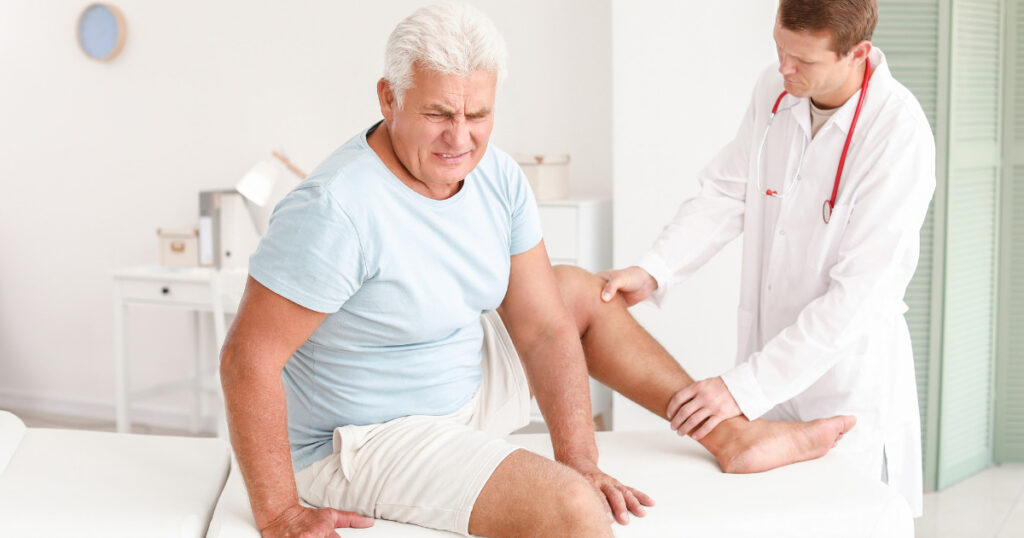What Is a Cortisone Injection? (Uses, Benefits, Side Effects)

If your doctor has advised you that you need cortisone injections, then your joints are likely dealing with pain and inflammation. These injections can usually be administered in your doctor’s office.
So, what is a cortisone injection, exactly?
This article will help you understand how cortisone shots work, including the common side effects and what you should expect when getting the shot so you can fully understand how it will affect your current body condition.
What Is a Cortisone Injection?
Cortisone or corticosteroid hormone is a steroid medication created to manufacture cortisol, a naturally occurring hormone in the body. It is commonly used as a medication to treat certain kinds of medical conditions such as allergies, inflammation, and autoimmune disorders.
A cortisone injection lessens the inflammation inside the body, and reducing the inflammation can also help relieve pain and discomfort in the affected area.
Why Would a Doctor Give You a Cortisone Shot?

As we have mentioned, cortisone injections are usually given to patients whose chief complaint is joint inflammation, specifically pain and swelling. In general terms, people who are diagnosed with the following medical conditions can be given cortisone shots as an effective pain relief medication:
- Rheumatoid arthritis
- Knee and hip arthritis
- Back pain due to spinal stenosis or ruptured discs
- Arm and leg pain
- Carpal tunnel syndrome
- Bursitis
- Asthma
- Plantar fasciitis
- Lupus
- Tendonitis
- Gout
- Other conditions that affect the immune system
What Happens During the Injection Procedure?
Your healthcare provider will apply an iodine-based solution on the injection site. After that, they may apply numbing cream or spray on the area to lessen the discomfort. Then the shot will be administered to your body, and a bandage will be put on the injected area.
If you are getting the shot for a joint that has a lot of fluid, the doctor may have to drain the fluid out before proceeding with the injection.
Benefits of Cortisone Injection

The major benefit of getting cortisone shots from your healthcare provider is it can relieve pain, especially joint pain that is affected by arthritis, quickly.
Additionally, there are other benefits that you can expect such as the following:
- Faster healing of wounds: people who have sports injuries can greatly benefit from a cortisone shot in terms of speeding up the process of wound healing.
- Increased mobility: Along with physical therapy, people suffering from injuries and joint pains can have better mobility and flexibility
- Reduces inflammation: If you have conditions such as arthritis, tendonitis, and bursitis, a cortisone shot can significantly reduce the inflammation in the affected area.
- Pain management: Using nonsteroidal anti-inflammatory medications or cortisone shots can be used to relieve discomfort and swelling, especially for those suffering from leg pain and who would like to avoid the need for surgical interventions.
Drawbacks of Cortisone Shots
Before we list down all the possible side effects of cortisone, it is essential to know that taking corticosteroid injections provides fewer risks of side effects compared with the ones taken orally. Cortisone shots are also less likely to induce weight gain than oral ones.
Common Side Effects:
- Cortisone flare or pain around the injected area
- Flushing of the face
- Pale-looking skin around the injection site
- Bruising around the injected area
- Insomnia
- Short-term increase in blood sugar levels
- Short-term increase in high blood pressure
- Increase of appetite
Short-term side effects
These side effects can be experienced short term, but they are rare to happen:
- Infection on the affected joint
- Allergic reactions
- Bleeding due to broken blood vessels
- Tendon ruptures
Long-term side effects
Patients who have repeated cortisone shots or are getting higher doses of the injection may experience these long-term side effects:
- Easy bruising of the skin
- Weight gain
- Increased blood pressure
- Formation of cataracts
- Osteoporosis
- Avascular necrosis (very rare but can impose serious damage on the bones of large joints)
[Related: Back Pain Specialist Explains: Epidural for Back Pain (Pros and Cons)]
How Long Does a Cortisone Injection Last?
This depends on several factors such as the type of medical condition you are getting treated for, the dosage of cortisone injections, and the patient’s bodily response to the medication.
Cortisone injections can help suppress the pain for approximately six weeks up to two months or more.
Who Can Get Cortisone Shots?

Generally speaking, adults and even young children and infants can get cortisone injections. But there are instances wherein an individual cannot be given a shot due to the following:
- If you have allergies to hydrocortisone
- If you have a current infection
- If you are diagnosed with depression, bipolar disorder, or manic depression
- If you are trying to conceive
- If you are nursing
- If you have recently been exposed to people who are infected with chickenpox, measles, or shingles
- If you recently had or are about to take vaccine shots
You also have to tell your doctor if you have the following conditions:
- Glaucoma
- Unhealed wounds in your body
- Osteoporosis
- Diabetes (Cortisone shots can affect your blood sugar)
How Painful Is a Cortisone Shot?
The pain due to a cortisone shot can be a subjective topic since it mainly depends on the patient’s pain tolerance. But generally speaking, you can experience slight discomfort and pressure while getting corticosteroid injections.
The area where the injection is being administered can also be a factor on how painful the shot can be. Additionally, if a patient is anxious or stressed, they may experience more pain than people who have a better mental health state.
If you are very concerned about the pain that you may experience when taking the shot, you may speak with your healthcare provider about certain ways to help minimize the discomfort during the medication administration.
What Are Supplementary Medications for Cortisone Shots?
For people who are not allowed to be given cortisone shots, the doctor may give other options to manage the pain from your joints.
There are several supplementary treatment choices that patients can opt for aside from taking steroid injections:
- Physical therapy to lessen pain and swelling of joints
- Nonsteroidal anti-inflammatory drugs (NSAIDs)
- Muscle relaxants
- Lifestyle changes such as weight management
What To Do After a Cortisone Shot (Post-procedure Guide)
After getting your cortisone shot, you might feel a little warm on your chest and face. It is also common to see some redness around the injection site. The best thing you can do to relieve the pain is to put an ice pack on the injection site. Taking a quick shower (but not a long hot bath in a tub) is generally safe to do.
Give your doctor a call if you notice any signs of redness, swelling, and pain on the injection site after 2 days. Make sure to observe the injected area of your body for any other signs of infection.
Do You Need To Rest After a Cortisone Injection?
Yes, taking a good rest after receiving the cortisone injection is a must to help reduce the risk of getting any side effects. Avoid lifting heavy objects and strenuous physical activity within 24 to 28 hours as it can lead to swelling and inflammation of the injected site.
Your doctor will give you some precautions and advice for the post-injection experience. They may also advise you if it is safe to continue with your physical therapy or wait a few days to help your body recover.
Be Pain-Free Today!

Experience the feeling of returning to your normal lifestyle, and live pain-free today! Our providers here at Vascular & International Specialists of Prescott are here to help you with your pain. We provide exceptional treatments for arm and leg pain, arterial blockages, back pain, neck pain, pinched nerves, tumors, and more.
We offer specialized care for the residents of Prescott, Arizona, and our clinic is always open to help you. Call us today to schedule an appointment.
Vascular & Interventional Specialists of Prescott was formed in 2010 by a group of subspecialty radiologists that perform numerous minimally-invasive, low-risk procedures using the tools of our trade for guidance—x-ray, ultrasound, CT scan, and MRI. The team’s goal is to educate patients and medical communities, while also providing safe and compassionate health care, with rapid recovery times and low risk of complications.
